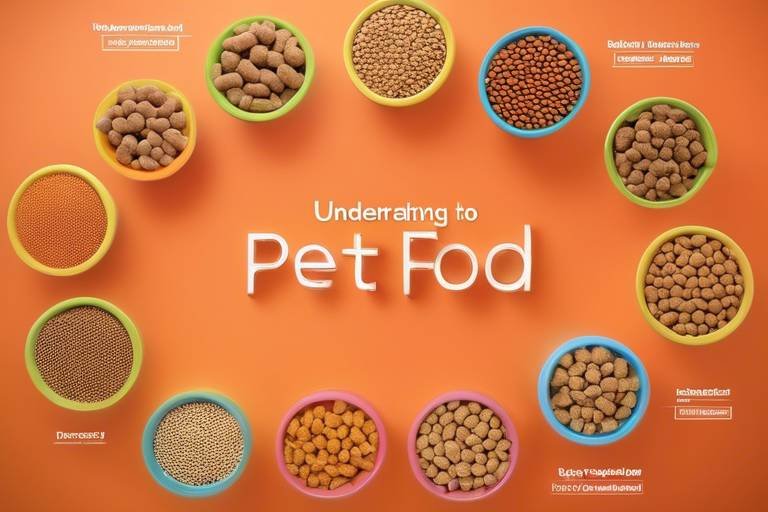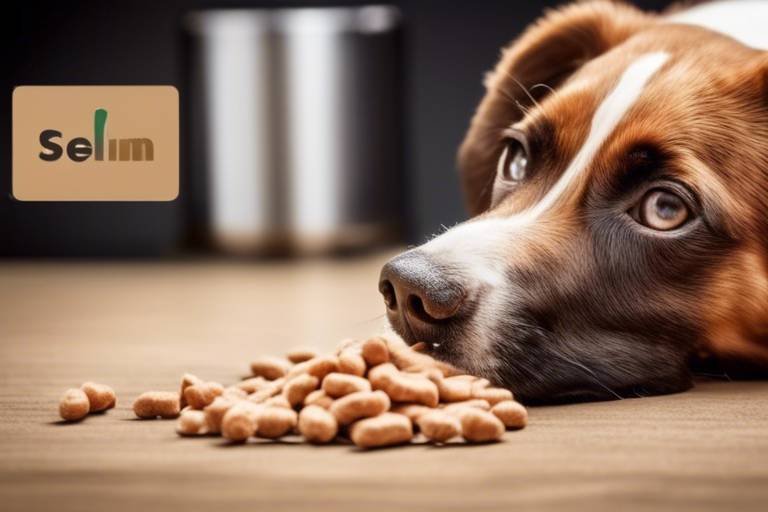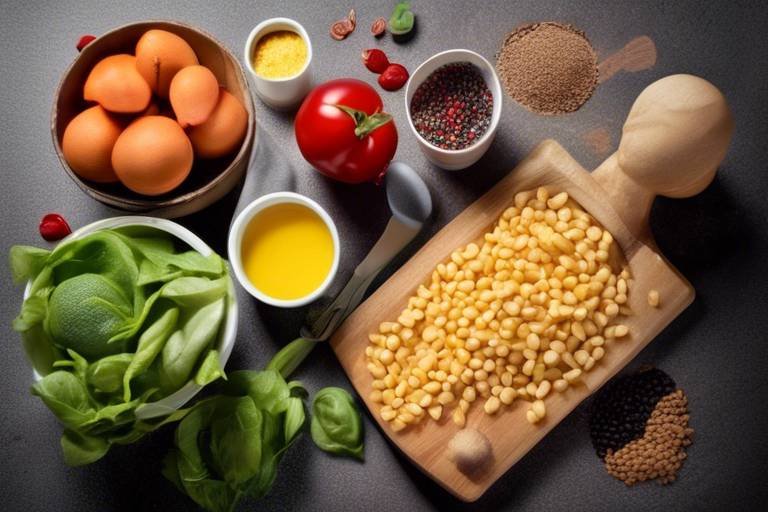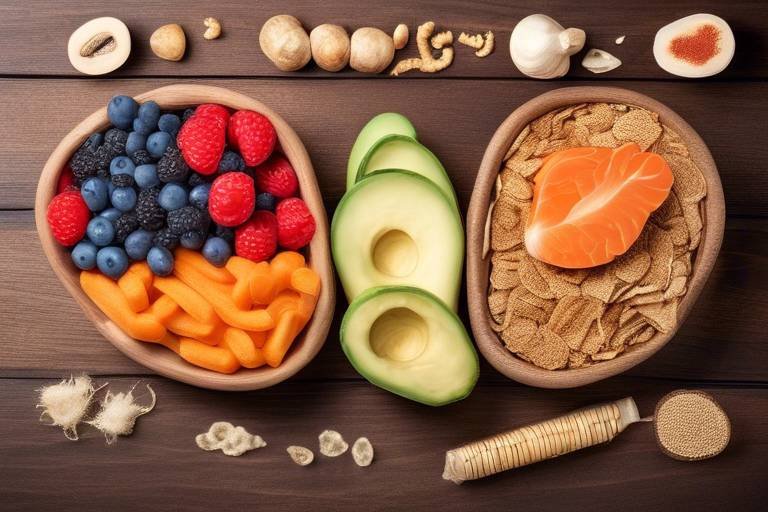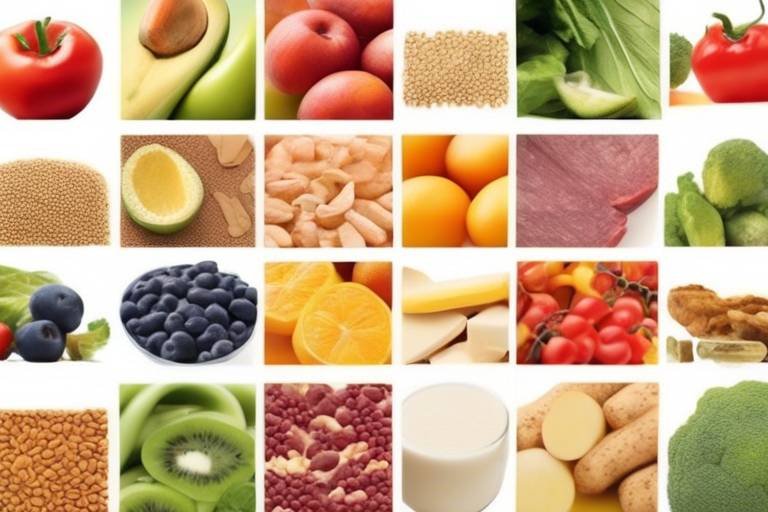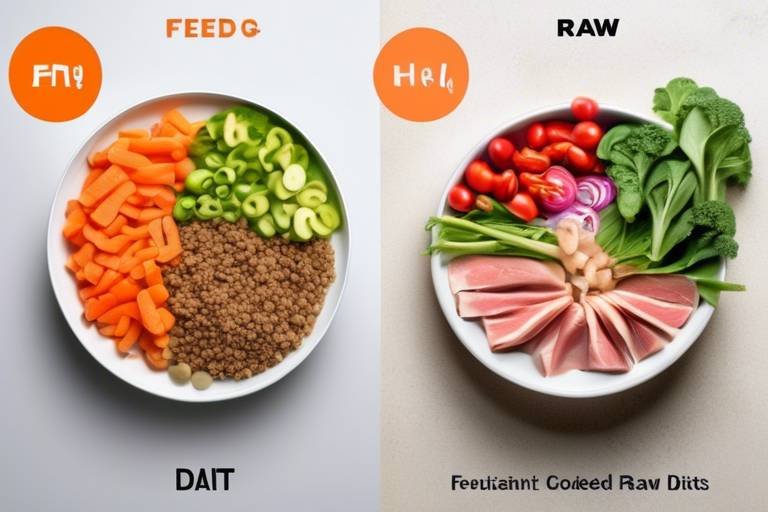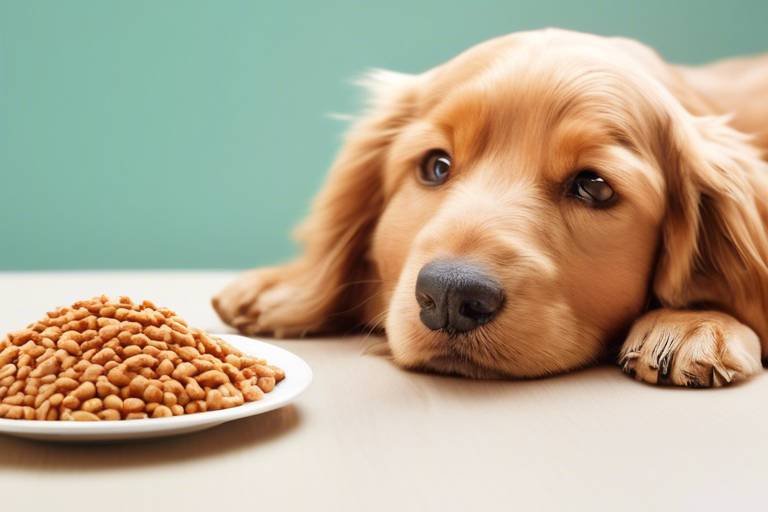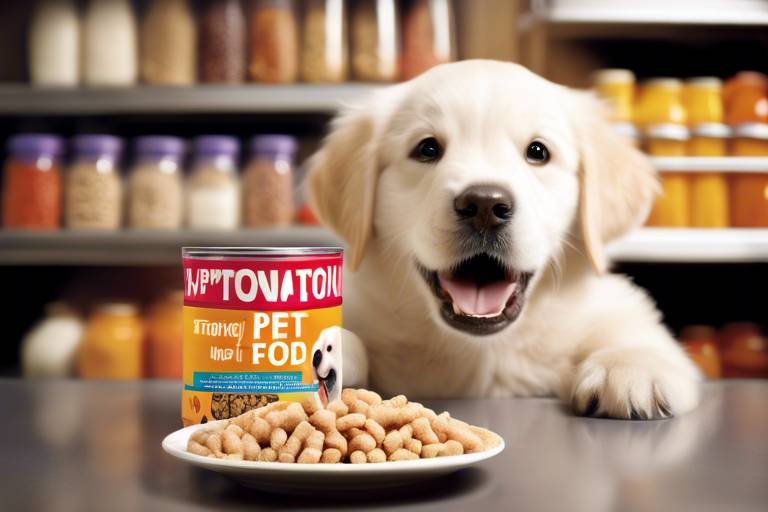How to Prepare a Balanced Diet for Your Ferret
Welcome to the fascinating world of ferret care! If you’re a proud ferret parent or thinking about becoming one, understanding how to prepare a balanced diet for your furry friend is essential. Ferrets are playful, curious creatures that require specific nutrients to thrive. Just like how we wouldn’t want to eat junk food all day, our ferrets deserve a diet that fuels their energy and keeps them healthy. So, let’s dive into the essentials of ferret nutrition and discover how to keep those little tails wagging!
Ferrets are unique animals with distinct dietary requirements that set them apart from other pets like dogs or cats. They are considered obligate carnivores, meaning they must consume meat to meet their nutritional needs. A balanced diet for a ferret primarily consists of proteins, fats, and specific vitamins. If you think about it, their bodies are like finely tuned engines that require the right fuel to run efficiently. Just as you wouldn’t put low-grade fuel in a sports car, you shouldn’t skimp on quality when it comes to your ferret’s food!
Let’s break down the essential nutrients:
- Proteins: Ferrets need high levels of animal protein for energy, growth, and overall health.
- Fats: Healthy fats are crucial for maintaining skin and coat health, as well as providing energy.
- Vitamins and Minerals: Vitamins A, D, and E, along with minerals like calcium and phosphorus, are vital for their well-being.
Selecting high-quality food is one of the most important decisions you’ll make as a ferret owner. The market is flooded with various brands and types of ferret food, making it crucial to know what to look for on the label. Think of it as shopping for a car; you want something reliable and suited for your needs. Look for foods that list real meat as the first ingredient and avoid those with fillers like corn or soy. These fillers are like putting water in your gas tank—not ideal!
Ferret food comes in different forms, primarily kibble and canned options. Each has its pros and cons. Kibble is convenient and helps keep your ferret’s teeth clean, while canned food can be more palatable and hydrating. Here’s a quick comparison:
| Type of Food | Pros | Cons |
|---|---|---|
| Dry Kibble | Convenient, dental benefits | Less moisture, potential for lower protein content |
| Wet Food | More palatable, higher moisture content | Can spoil quickly, may be less convenient |
When comparing dry kibble and wet food, consider your ferret’s preferences and health needs. Some ferrets might prefer the crunch of kibble, while others might lean towards the soft texture of wet food. Ultimately, a combination of both can provide a well-rounded diet, much like how we enjoy a variety of textures in our meals.
If you're a hands-on pet parent, you might be interested in preparing meals at home. However, it’s essential to ensure that any homemade diet is safe and nutritious. Think of it as crafting a gourmet meal for your ferret. You can include cooked meats, eggs, and even certain vegetables, but always research what’s safe for them. Just like we wouldn’t feed our friends something harmful, we must ensure our ferrets get the best!
As mentioned earlier, ferrets are carnivores, and their diet should be rich in protein. Suitable protein sources include:
- Chicken
- Turkey
- Fish
- Commercial ferret foods high in protein
Incorporating these protein sources into their diet ensures that your ferret remains energetic and healthy. It’s like giving them a superhero cape—suddenly, they can leap and play with more vigor!
Establishing a regular feeding schedule is vital for your ferret’s health. Just like we thrive on routine, ferrets benefit from consistent meal times. Aim to feed your ferret at least twice a day, adjusting portion sizes based on their age and activity level. Remember, moderation is key! Overfeeding can lead to obesity, which can cause numerous health issues.
Recognizing the signs of overfeeding is crucial. If your ferret seems lethargic, has trouble moving, or is gaining weight rapidly, it might be time to reassess their diet. Just like us, ferrets can struggle with excess weight, and it’s important to adjust their feeding habits accordingly.
As your ferret ages or faces health issues, their dietary needs may change. Older ferrets may require softer food, while those with health concerns might need a specific diet. Always consult with your veterinarian to tailor their diet to their current needs. It’s like having a personal trainer for their diet—ensuring they stay fit and healthy!
1. Can I feed my ferret fruits and vegetables?
While ferrets are primarily carnivores, small amounts of fruits and vegetables can be offered as treats. Always research which ones are safe.
2. How often should I feed my ferret?
Ferrets should be fed at least twice a day, with portion sizes adjusted based on their age and activity level.
3. Is it okay to mix different brands of ferret food?
Yes, mixing different brands can be beneficial, but ensure they are high-quality and meet your ferret's nutritional needs.
4. What are the signs of a healthy ferret?
A healthy ferret is active, has a shiny coat, and maintains a healthy weight. Regular vet check-ups are also essential!

Understanding Ferret Nutritional Needs
This article explores the essential components of a balanced diet for ferrets, including nutritional needs, food types, and feeding schedules to ensure optimal health and well-being for your furry friend.
Ferrets are unique little creatures with very specific dietary requirements that set them apart from other pets. Unlike dogs or cats, ferrets are obligate carnivores, meaning their bodies are designed to thrive on a diet rich in animal protein. This isn’t just a preference; it’s a necessity! A balanced diet for a ferret includes essential nutrients such as proteins, fats, and various vitamins that work together to keep them healthy and happy.
First and foremost, let’s talk about proteins. These little furballs need a diet that is at least 30% protein. This protein primarily comes from animal sources, as ferrets have a short digestive tract that efficiently processes meat. So, think of proteins as the building blocks for their muscles and overall health. When selecting food, always check the label for high-quality protein sources like chicken, turkey, or lamb. Avoid foods that list corn or soy as the primary ingredients, as these are not suitable for your ferret's dietary needs.
Next up is fat. Healthy fats are just as crucial, providing energy and supporting skin and coat health. Ferrets require a diet that includes around 15% fat. Look for animal fats or oils, such as chicken fat or fish oil, which are beneficial for your ferret. However, keep in mind that too much fat can lead to obesity, so balance is key!
Vitamins and minerals also play a significant role in your ferret's diet. Ferrets need a variety of vitamins, including Vitamin A for vision and immune function, Vitamin D for calcium absorption, and Vitamin E for skin health. These nutrients are typically found in high-quality ferret food, but if you’re considering homemade diets, you may need to supplement them.
In summary, when formulating a diet for your ferret, keep the following points in mind:
- High Protein: Aim for at least 30% protein from animal sources.
- Healthy Fats: Include approximately 15% fat, focusing on animal fats.
- Essential Vitamins: Ensure a variety of vitamins are present for overall health.
Understanding these nutritional needs is the first step in ensuring your ferret leads a healthy and vibrant life. Remember, a well-fed ferret is a happy ferret! So, take the time to research and select the best food options available, and your little companion will thrive!
1. Can ferrets eat fruits and vegetables?
While ferrets are primarily carnivorous, small amounts of fruits and vegetables can be given as treats, but they should not form a significant part of their diet.
2. How often should I feed my ferret?
Ferrets should ideally be fed multiple small meals throughout the day, about 3-4 times, to mimic their natural eating habits.
3. What are the signs of a balanced diet in ferrets?
A healthy ferret will have a shiny coat, good energy levels, and a healthy weight. If you notice any changes in behavior or appearance, consult a vet.

Choosing the Right Food
When it comes to selecting the right food for your ferret, the choices can be overwhelming. With so many brands and types available, how do you ensure that you’re making the best decision for your furry friend? The key lies in understanding what constitutes a high-quality ferret diet. Ferrets are obligate carnivores, meaning their bodies are designed to thrive on a diet rich in animal protein. Thus, the first step in choosing the right food is to look for products that list high-quality animal proteins as their primary ingredients.
It's essential to scrutinize the ingredient list on the packaging. Look for meats such as chicken, turkey, or lamb at the top of the list. Avoid foods that contain fillers like corn or soy, as these ingredients provide little nutritional value for ferrets. Instead, opt for foods that are specifically formulated for ferrets, as these will typically contain the right balance of proteins, fats, and vitamins necessary for their health. Additionally, you may want to consider the following:
- Protein Content: Aim for a food that contains at least 30-40% protein. This is crucial for maintaining your ferret's energy levels and overall health.
- Fat Content: Look for foods with around 15-20% fat. Healthy fats are important for skin and coat health.
- Low Carbohydrates: Ferrets do not require carbohydrates in their diet, so choose foods that are low in fiber and carbs.
In addition to commercial ferret food, you might be tempted to explore homemade options. While this can be a fun and rewarding way to feed your pet, it’s vital to ensure that any homemade meals are nutritionally balanced. If you're considering this route, consult with a veterinarian to create a meal plan that meets all of your ferret's dietary needs. Remember, just like a chef needs the right ingredients to create a masterpiece, you need to have the right knowledge to prepare a healthy meal for your ferret.
Another important factor to consider is the brand reputation. Research the brands you’re considering. Look for companies that have a good track record of quality and safety. Reading reviews and testimonials from other ferret owners can provide valuable insights into which products might be best for your pet. Also, don’t hesitate to ask your veterinarian for recommendations, as they can provide guidance based on your ferret’s specific health needs.
Finally, don’t forget to introduce new foods gradually. Sudden changes in diet can lead to digestive upset in ferrets. Mix a small amount of the new food with their current diet, gradually increasing the new food over several days. This will help your ferret adjust to the new flavors and textures without causing any tummy troubles.
In summary, choosing the right food for your ferret involves careful consideration of their nutritional needs, ingredient quality, and brand reputation. By taking the time to research and select the best food, you can ensure that your ferret lives a happy, healthy, and vibrant life.
Types of Commercial Ferret Food
When it comes to feeding your ferret, understanding the different types of commercial ferret food available can make all the difference. Just like humans, ferrets have their preferences and nutritional needs, which makes selecting the right food essential for their health and happiness. There are primarily two types of commercial ferret food: dry kibble and wet food. Each type has its own set of advantages and disadvantages that you should consider before making a choice.
Dry Kibble is often the most popular choice among ferret owners. It is convenient, easy to store, and typically has a longer shelf life than wet food. Kibble is also beneficial for your ferret's dental health, as the crunchiness can help reduce plaque buildup. However, not all kibble is created equal. When choosing a dry food, look for one that lists high-quality animal protein as the first ingredient and contains minimal fillers, such as corn or soy.
On the other hand, wet food can be a tasty treat for your ferret. Many ferrets find the moisture and flavor of wet food more appealing than dry kibble, which can be especially helpful for picky eaters or those who might struggle with hydration. However, wet food typically has a shorter shelf life and can be messier to serve. It’s essential to ensure that any wet food you choose is also high in protein and low in carbohydrates.
To help you decide, here's a quick comparison of dry kibble and wet food:
| Type | Pros | Cons |
|---|---|---|
| Dry Kibble |
|
|
| Wet Food |
|
|
Ultimately, the best approach might be to provide a combination of both dry kibble and wet food. This way, you can enjoy the benefits of each type while catering to your ferret's preferences. Remember, however, to always check the ingredient list and ensure that the food is specifically formulated for ferrets, as their dietary needs differ significantly from those of cats or dogs.
In conclusion, choosing the right type of commercial ferret food is crucial for maintaining your pet's health and happiness. By understanding the pros and cons of dry kibble and wet food, you can make an informed decision that best suits your ferret's needs.
Q: Can I feed my ferret cat food?
A: While cat food contains protein, it is not formulated for ferrets and can lead to health issues over time. It's best to stick to food specifically designed for ferrets.
Q: How much food should I give my ferret?
A: A general guideline is to provide about 1/4 to 1/2 cup of high-quality ferret food per day, but this may vary based on age, weight, and activity level.
Q: Is it okay to mix different brands of ferret food?
A: Yes, mixing different brands can help provide a more balanced diet, but introduce new foods gradually to avoid digestive upset.
Dry Kibble vs. Wet Food
When it comes to feeding your ferret, one of the most significant decisions you'll face is whether to offer dry kibble or wet food. Each type has its unique set of advantages and disadvantages, and understanding these can help you make the best choice for your furry friend. Let's dive into the nitty-gritty of both options!
Dry kibble is often the go-to choice for many ferret owners. It is convenient, easy to store, and can help keep your pet's teeth clean due to its crunchy texture. Additionally, dry food tends to have a longer shelf life, which means you can buy in bulk without worrying about spoilage. However, one major drawback is that it typically contains less moisture than wet food, which can be a concern if your ferret isn't drinking enough water. Dehydration in ferrets can lead to serious health issues, so it's essential to ensure they stay hydrated, especially if you choose kibble.
On the flip side, wet food can be an excellent option for ferrets as it is often higher in moisture content, which can aid in hydration. Many ferrets find wet food more palatable and may be more inclined to eat it, especially if they are picky eaters. This can be particularly beneficial for younger ferrets or those recovering from illness. However, wet food generally has a shorter shelf life and can be messier, requiring more frequent cleaning of the feeding area. Additionally, wet food might be more expensive than dry kibble, which is something to consider if you're on a budget.
To help you weigh your options, here’s a quick comparison:
| Feature | Dry Kibble | Wet Food |
|---|---|---|
| Moisture Content | Low | High |
| Convenience | Easy to store and serve | Requires refrigeration after opening |
| Dental Health | Helps clean teeth | Less effective for dental health |
| Cost | Generally more affordable | Can be more expensive |
| Palatability | May be less appealing to some ferrets | Often more appealing |
Ultimately, the choice between dry kibble and wet food may come down to your ferret's individual preferences and health needs. Some owners opt for a combination of both, providing the benefits of each while ensuring their ferret enjoys a balanced diet. Don’t forget to monitor your ferret's weight and overall health, adjusting their diet as needed to keep them happy and healthy!
1. Can I mix dry kibble and wet food?
Yes, many ferret owners find that mixing both types can provide a balanced diet, combining the benefits of hydration from wet food with the dental health advantages of dry kibble.
2. How do I know if my ferret is overfeeding?
Signs of overfeeding include lethargy, excessive weight gain, or difficulty in movement. It's essential to monitor their diet and adjust portions accordingly.
3. Is it safe to feed my ferret human food?
While some human foods can be safe for ferrets, many are not. Always consult with a veterinarian before introducing any human food to your ferret's diet.
4. How often should I feed my ferret?
Ferrets typically require multiple small meals throughout the day. A good rule of thumb is to feed them 2-3 times daily, ensuring they have access to food at all times.
Homemade Diet Options
When it comes to feeding your ferret, the thought of preparing a homemade diet can be both exciting and daunting. After all, who wouldn't want to whip up a delicious meal for their furry friend? However, it’s crucial to remember that ferrets are obligate carnivores, meaning their diet must be rich in animal proteins. This means that when you're considering homemade options, you need to focus on high-quality meats and avoid ingredients that might be harmful to them.
One fantastic way to start is by incorporating lean meats such as chicken, turkey, or even rabbit into their meals. These protein sources can be cooked and shredded, making them easy for your ferret to eat. But don't stop there! You can also include organ meats like liver or heart, which are packed with essential nutrients. Just be cautious not to overdo it with organ meats, as too much can lead to an imbalance in their diet.
Another excellent addition to your ferret's homemade diet is eggs. Scrambled or boiled eggs can be a tasty treat that provides necessary fats and proteins. Just remember to serve them in moderation, as too many eggs can lead to digestive issues. Additionally, some ferret owners have found success by adding small amounts of high-quality commercial ferret food to their homemade meals. This can help ensure that your pet gets all the vitamins and minerals they need while still enjoying the benefits of freshly prepared food.
Here’s a simple recipe to get you started:
Ingredients: - 1 cup of cooked chicken (shredded) - 1/4 cup of cooked egg (scrambled) - 1/4 cup of chicken liver (cooked) - 1/4 cup of high-quality ferret kibble (optional) Instructions: 1. Combine all ingredients in a bowl. 2. Mix well until evenly distributed. 3. Serve fresh and store any leftovers in the refrigerator for up to 2 days.
While preparing homemade meals can be rewarding, it’s essential to keep a few things in mind. Always consult with your veterinarian before making any significant changes to your ferret's diet, especially if they have existing health issues. Moreover, ensure that you maintain a balanced diet over time, as variety is key to preventing nutritional deficiencies. It’s like creating a symphony of flavors and nutrients that dance together to keep your ferret healthy and happy!
In conclusion, homemade diets can be a wonderful way to provide your ferret with the nutrition they need while also allowing you to bond over mealtime. Just remember to focus on protein-rich ingredients, keep meals balanced, and always prioritize your ferret's health. By doing so, you’ll not only nourish your pet but also make mealtime a delightful experience for both of you.
- Can I feed my ferret fruits or vegetables? Ferrets have a digestive system that is not designed to process plant matter, so it's best to avoid fruits and vegetables altogether.
- How often should I prepare homemade meals for my ferret? You can offer homemade meals a few times a week while still providing high-quality commercial ferret food as the main part of their diet.
- Is it safe to feed my ferret raw meat? While some ferret owners choose to feed raw diets, it's crucial to ensure that the meat is fresh and handled properly to avoid any risk of bacterial contamination.
- What should I do if my ferret refuses to eat homemade food? If your ferret shows hesitation, try mixing a small amount of their favorite commercial food with the homemade meal to entice them.
Understanding Protein Sources
When it comes to feeding your ferret, understanding the importance of protein is crucial. Ferrets are classified as obligate carnivores, which means their bodies are designed to thrive on a diet primarily composed of animal proteins. Unlike dogs or cats, ferrets lack the necessary enzymes to digest plant-based proteins effectively. Therefore, their diet should be rich in high-quality protein sources to support their energy needs and overall health.
So, what exactly are the best protein sources for your furry friend? Well, let’s break it down. The primary sources of protein for ferrets typically include:
- Meat: Fresh meats such as chicken, turkey, and rabbit are excellent choices. They provide essential amino acids that are vital for your ferret's growth and maintenance.
- Fish: Fish is another great source of protein. Options like salmon or tuna can be offered occasionally, but be cautious of the mercury levels.
- Commercial Ferret Food: Look for high-quality ferret foods that list meat as the first ingredient. These foods are specially formulated to meet the unique dietary needs of ferrets.
It's essential to avoid feeding your ferret processed meats or those containing fillers, as these can lead to health issues. Instead, opt for whole meats or high-quality commercial diets that focus on animal protein. When selecting commercial ferret food, check the label for protein content. A good ferret diet should contain at least 30-40% protein to keep your ferret healthy and active.
In addition to the type of protein, the quality matters just as much. Fresh, high-quality protein sources are more digestible and beneficial for your ferret than lower-quality options. For instance, meats that are fresh and free from preservatives will not only provide better nutrition but will also keep your ferret more energetic and playful.
It's also worth noting that some ferret owners choose to prepare homemade meals. If you go this route, be sure to include a variety of protein sources to ensure a balanced diet. However, always consult with a veterinarian or a pet nutritionist to ensure that your homemade meals meet all of your ferret's nutritional needs. A well-rounded diet is key to a long and healthy life for your pet!
In summary, understanding the protein sources in your ferret's diet is fundamental to their health. By focusing on high-quality animal proteins and ensuring a balanced intake, you can help your ferret thrive and enjoy a happy, active life.
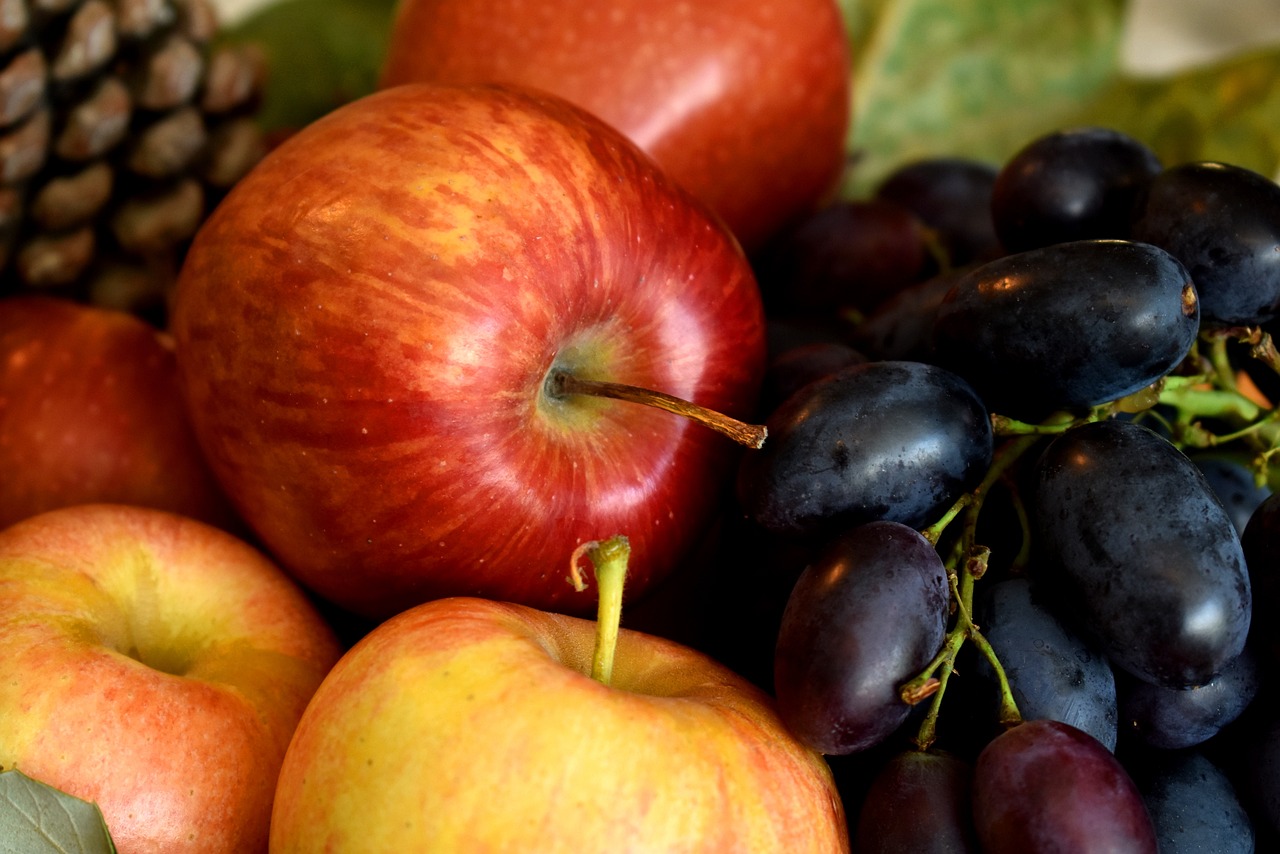
Feeding Schedule and Portion Control
Establishing a regular feeding schedule for your ferret is not just a good idea; it’s essential for maintaining their health and happiness. Just like us, ferrets thrive on routine, and a consistent feeding schedule can help prevent overeating and obesity. Generally, ferrets should be fed at least two to three times a day, depending on their age and activity level. This feeding frequency mimics their natural hunting instincts, allowing them to eat smaller portions throughout the day, which is more in line with their biological needs.
When it comes to portion control, understanding the right amount of food to offer is crucial. Overfeeding can lead to serious health issues, including obesity, which can shorten your ferret's lifespan. A good rule of thumb is to feed your ferret about 1 to 2 ounces of food per meal, adjusting based on their individual needs. It’s important to monitor their weight and body condition regularly. If your ferret is gaining too much weight, consider reducing their portion size or increasing their playtime to burn off those extra calories.
To make things easier, you can keep a feeding log. This can help you track how much your ferret eats and when. Here’s a simple table to illustrate a sample feeding schedule:
| Time | Food Amount | Notes |
|---|---|---|
| 8:00 AM | 1 oz | Breakfast |
| 12:00 PM | 1 oz | Lunch |
| 6:00 PM | 1 oz | Dinner |
| 8:00 PM | Optional Treat | Playtime Reward |
It’s also important to remember that ferrets are creatures of habit. They may become accustomed to certain feeding times, so try to stick to your schedule as much as possible. If you need to change their feeding times, do so gradually to avoid upsetting their routine.
Lastly, be on the lookout for signs that your ferret may be overfed. Common symptoms include lethargy, difficulty moving, and an overall lack of interest in play. If you notice these signs, it might be time to reassess their diet and feeding schedule. Adjusting their food intake can help keep them healthy, happy, and full of energy.
- How often should I feed my ferret? - Ideally, ferrets should be fed two to three times a day.
- What is the best way to control portions? - A good starting point is to offer 1 to 2 ounces of food per meal, adjusting based on your ferret's needs.
- What are the signs of overfeeding? - Watch for lethargy, difficulty moving, and disinterest in play as signs of potential overfeeding.
Signs of Overfeeding
Recognizing the signs of overfeeding in your ferret is crucial for maintaining their health and preventing obesity. Just like us, ferrets can struggle with weight issues if they consume too much food. So, how can you tell if your furry friend is getting a bit too much on their plate? One of the first things to look for is a noticeable increase in body weight. If your ferret seems to be gaining weight rapidly, it might be time to reevaluate their diet.
Another sign to watch for is a change in their activity level. Ferrets are naturally energetic creatures, and if your little buddy starts to become lethargic or less playful, it could be a result of excess weight. Overweight ferrets often find it challenging to engage in their usual activities, which can lead to a sedentary lifestyle, creating a vicious cycle of weight gain.
Additionally, keep an eye on your ferret's eating habits. If they seem to be begging for food constantly or if they start scavenging for extra treats, it might indicate that they are not getting the right amount of food or the right type of food. It's essential to establish a consistent feeding schedule and stick to it. Overfeeding can also lead to an increased risk of health issues such as insulinoma, a common condition in ferrets that can arise from a poor diet.
Here are some specific signs that can indicate your ferret is being overfed:
- Weight Gain: A noticeable increase in weight or difficulty feeling their ribs.
- Lethargy: Reduced energy levels and less enthusiasm for playtime.
- Changes in Eating Habits: Constant begging or scavenging behavior.
- Health Issues: Symptoms like vomiting or diarrhea can also occur due to overfeeding.
It's important to remember that every ferret is unique, and their dietary needs can vary based on factors such as age, activity level, and overall health. If you notice any of these signs, it might be time to consult with your veterinarian to adjust their diet appropriately. They can provide personalized advice tailored to your ferret's specific needs, ensuring that your beloved pet remains healthy and happy.
Q: How often should I feed my ferret?
A: Most ferrets do well with 2-4 meals per day. It's essential to establish a consistent feeding schedule to help manage their weight.
Q: What should I do if my ferret is overweight?
A: Consult your veterinarian for tailored advice. They may suggest a dietary change or an increase in exercise.
Q: Can I give my ferret treats?
A: Yes, but treats should be given in moderation. Opt for healthy options and ensure they do not exceed 10% of your ferret's daily caloric intake.
Q: What are the best commercial foods for ferrets?
A: Look for high-quality ferret foods that list meat as the first ingredient and contain minimal fillers. Always check the nutritional content to ensure it meets your ferret's needs.
Adjusting Diet for Age and Health
As your ferret matures, their dietary needs will evolve just like the seasons change. It's crucial to recognize that ferrets are not just small, furry creatures; they are unique beings with specific nutritional requirements that shift as they age. For instance, a young ferret, full of energy and curiosity, will have different dietary needs than a senior ferret who may be less active and more prone to health issues. So, how do you ensure that your furry friend is receiving the right nutrients at every stage of their life?
When adjusting your ferret's diet, consider their age, activity level, and any health concerns that may arise. Young ferrets, typically under six months old, require a diet rich in protein and fat to support their rapid growth and high energy levels. Look for foods that contain at least 30-40% protein and 15-20% fat to fuel their playful antics. On the other hand, as ferrets enter their senior years, usually around three to four years old, their metabolism slows down. This means they may not need as much food, but the quality of their diet becomes even more critical.
For older ferrets, consider the following adjustments:
- Opt for a diet lower in calories but still high in protein to prevent obesity.
- Incorporate easily digestible proteins, such as chicken or turkey, to support their aging digestive systems.
- Include supplements or foods rich in omega fatty acids to promote healthy skin and coat.
Health issues can also play a significant role in determining your ferret's dietary needs. For example, if your ferret is diagnosed with insulinoma, a common health condition in older ferrets, they may require a diet that is higher in protein and lower in carbohydrates. Conversely, if your ferret is suffering from adrenal disease, you might need to adjust their diet to include more fiber and fewer fats. Always consult with your veterinarian for tailored advice based on your ferret's specific health status.
| Age Group | Dietary Focus | Recommended Protein % | Recommended Fat % |
|---|---|---|---|
| Young Ferrets (0-6 months) | High energy and growth | 30-40% | 15-20% |
| Adult Ferrets (6 months - 3 years) | Maintenance and activity | 30-35% | 15-20% |
| Senior Ferrets (3+ years) | Weight management and health | 30-35% | 10-15% |
In conclusion, adjusting your ferret's diet as they age is not just about changing the food; it’s about understanding their unique needs and responding to them. By keeping an eye on their health and activity levels, you can make informed decisions that will help your furry friend thrive throughout their life. Remember, a well-balanced diet is the key to a happy and healthy ferret!
Q: How often should I feed my ferret as they age?
A: Young ferrets may need to be fed multiple times a day, while adult ferrets can be fed twice a day. Senior ferrets might benefit from smaller, more frequent meals to aid digestion.
Q: Can I switch my ferret’s food suddenly?
A: It’s best to transition your ferret to new food gradually over a week to avoid digestive upset. Mix the new food with the old food, slowly increasing the new food's proportion.
Q: Should I consult a vet about my ferret’s diet?
A: Yes! Regular check-ups with a veterinarian can help you tailor your ferret’s diet based on their health status and any specific needs.
Frequently Asked Questions
- What should I include in my ferret's diet?
Your ferret's diet should primarily consist of high-quality protein sources, as they are obligate carnivores. Look for ferret food that lists meat as the first ingredient, and ensure it contains a balanced amount of fats and essential vitamins. You can also include small amounts of fruits and vegetables as treats, but they should not make up the bulk of their diet.
- How often should I feed my ferret?
Ferrets typically require 2 to 4 meals a day. It's important to establish a consistent feeding schedule, as ferrets have fast metabolisms and need regular nourishment. Some owners opt for free feeding, leaving food available at all times, but portion control is crucial to prevent obesity.
- Can I feed my ferret homemade meals?
Yes, you can prepare homemade meals for your ferret, but it’s essential to ensure they are nutritionally balanced. Include high-quality meats, organ meats, and bones, and consult with a veterinarian to make sure you're meeting all their dietary needs. Avoid foods that are toxic to ferrets, such as chocolate, onions, and garlic.
- What are the signs of overfeeding in ferrets?
Watch for signs such as lethargy, difficulty moving, or a noticeable increase in weight. If your ferret seems to be gaining weight too quickly, it may be time to adjust their food portions. Regularly monitor their body condition to ensure they remain healthy and active.
- How can I adjust my ferret's diet as they age?
As ferrets age, their dietary needs may change. Older ferrets may require softer food or a diet lower in calories to prevent obesity. Consult with your veterinarian to tailor their diet based on their health status, activity level, and age. Regular check-ups can help you stay informed about their nutritional needs.


